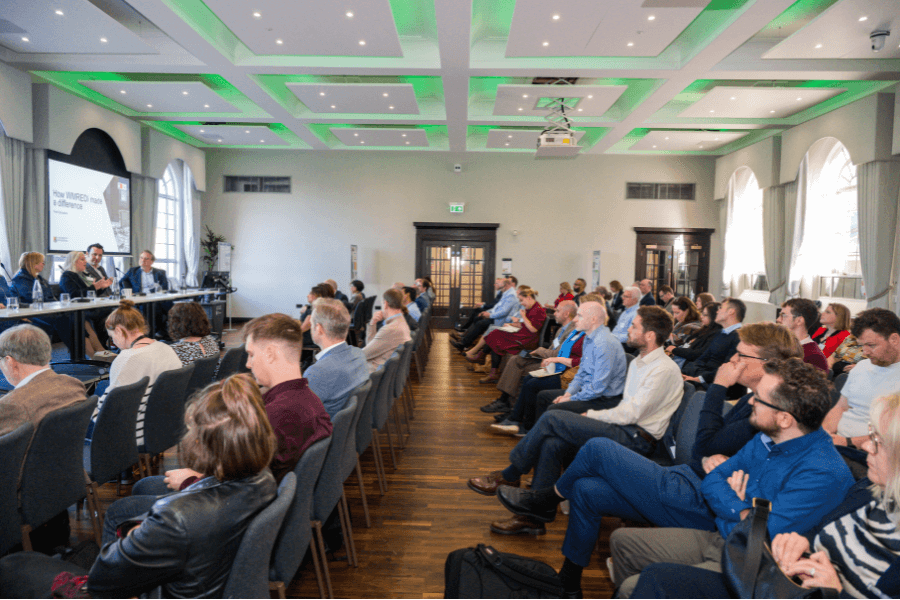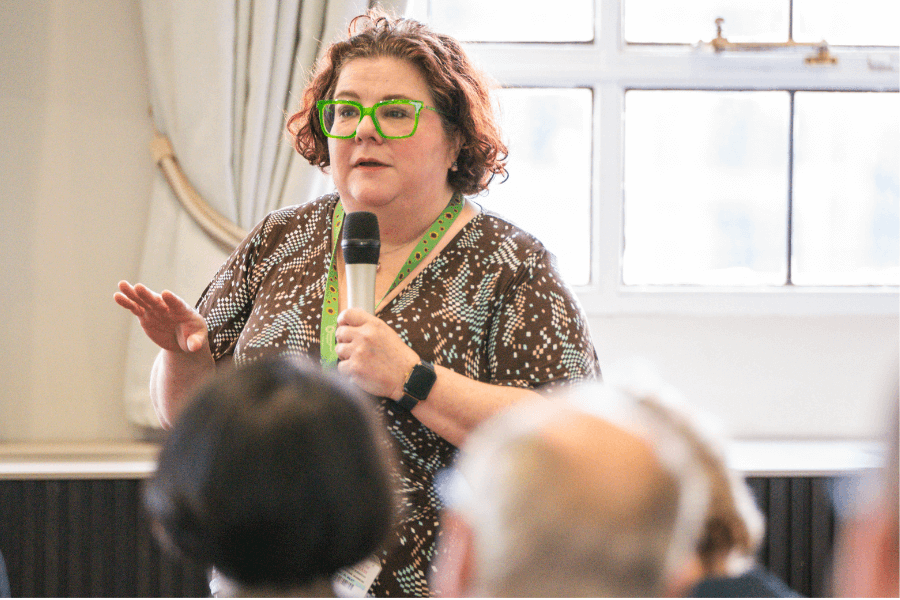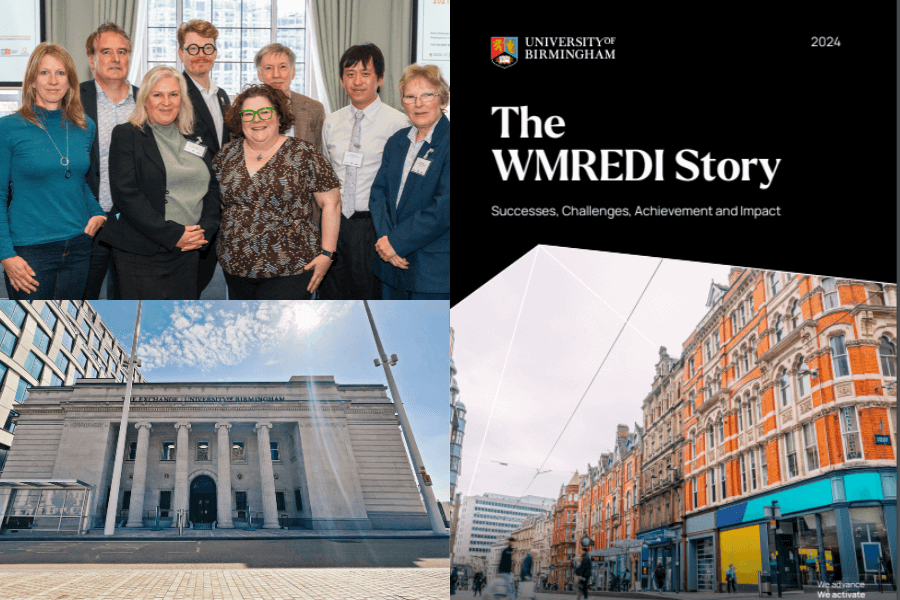In her new role as Executive Assistant for Professor Rebecca Riley, Danielle Dale blogs about attending the launch event of the WMREDI Story.
I am really enjoying being an Executive Assistant for our Deputy Pro Vice Chancellor for Regional Engagement, Professor Rebecca Riley (Bec). Bec co-directs our City-REDI research institute.
Recently, I attended the West Midlands Regional Economic Development Institute (WMREDI) celebration event at The Exchange, which really opened my eyes to the truly transformational work that Bec and her team do. I know a lot of you may have heard of City-REDI but aren’t quite sure what it is, so I hope I break it down for you.
The DNA of the University of Birmingham is civic
Our first Chancellor, Joseph Chamberlain, was the Mayor of Birmingham from 1873 to 1876. He was a firm believer in local communities acting on their own initiatives and was committed to the improvement of health and civic spaces for the local community. With Chamberlain at the helm, the University of Birmingham was established as the first civic UK university in 1900. We were also the first university in the UK to establish a School of Commerce in 1902 to respond to the rapidly changing environments at the time.
City-REDI is born
In the civic spirit of our first Chancellor, City-REDI was set up within the Business School in 2015 as part of our civic commitment to enrich the social and economic life of regions. To do this, they bring academic robustness, insight and evidence-based initiatives (anchored within a strong university) to local businesses and organisations in a multidisciplinary and interdisciplinary way. Just as the School of Commerce responded to the rapidly changing environments over a century ago, City REDI helps people navigate ongoing shocks and disruptions (such as Brexit and Covid) so that they become better at creating and distributing wealth, and by extension growing our economy. The research institute helps policy-makers and practitioners come up with strategies and interventions to deal with challenges and make evidence-based decisions about what to invest in.

The WMREDI project
WMREDI was launched in 2020. A sister institute to City-REDI, WMREDI was made possible by a major award from the Research England Development (RED) Fund, matched funding from the University of Birmingham, and key stakeholders across the West Midlands.
Based in The Exchange, a fantastic University of Birmingham building in Centenary Square, WMREDI supports inclusive economic growth in our city-region and regions across the UK as we regain our civic role with local partners. WMREDI were on the ground, working with partners and knocking down hurdles to make a difference in the region and communities. The project looked at how we grow our economy in a way that works for the West Midlands (by not comparing it to the capital city) and in a way that everyone benefits.

What did WMREDI achieve:
- For every £1 received from Research England, WMREDI gained £2, a fantastic return on investment.
- Supported over 200 companies and has created over 100 high-quality, good-value jobs for citizens.
- Interacted with people, businesses, organisations and local government.
- Shaped the future of West Midlands Combined Authority and empowered them to create their own research and community of practice to reduce the region’s fiscal deficit of £4bn. As part of the government’s ‘Levelling Up’ agenda, WMREDI helped them to win the largest accelerator in 15 healthcare partners in the region.
- Provided opportunities for regional businesses to engage with international clients and PhD students.
- Broken down silos of working in government and local organisations to enable people to work together effectively as a dynamic, equal team.
- Connected 150 young people in school to work with employers in our Birmingham Energy Innovation Centre in Tyseley.
- Upskilled the region with accreditation, training and early-stage entrepreneurs.
- Provided knowledgeable and esteemed partnership when collaborating at government level.
The knowledge and collaborations built by WMREDI will leave a legacy, with our thriving regional research ecosystem making a difference to people in the region.
What’s next?
City REDI will continue to participate in regional, national, and international debates to support place-based initiatives beyond the West Midlands, picking up many of the key aspects of work started by WMREDI. As the knowledge exchange ecosystem needs continual nourishment to survive and thrive, City REDI is at a key junction in its journey.
City REDI will:
- Develop new online modules in 2025.
- Support other universities to measure their civic impact.
- Adopt a blended approach to working with community sectors and qualitative data.
- Study the implications of AI, employment, climate change and net zero, geopolitical tensions, demographics and local and regional needs.
- Learn from existing evidence bases to build on their foundations.
- Continue to be an anchor and connector of organisations.
By embedding themselves into regions, City-REDI builds on the University’s capacity, connections and reputation to make a real difference in the world. We should be very proud of what we’ve achieved so far (I know Joseph Chamberlain would be!).
Find out more
- The City REDI blog is second only to the main University’s blogs in terms of views, boasting 214,000 visitors to date.
- You can also read The WMREDI Story: Successes, Challenges, Achievements and Impact report here.
This blog was written by Danielle Dale, Executive Assistant, University of Birmingham.
Disclaimer:
The views expressed in this analysis post are those of the author and not necessarily those of City-REDI or the University of Birmingham.

